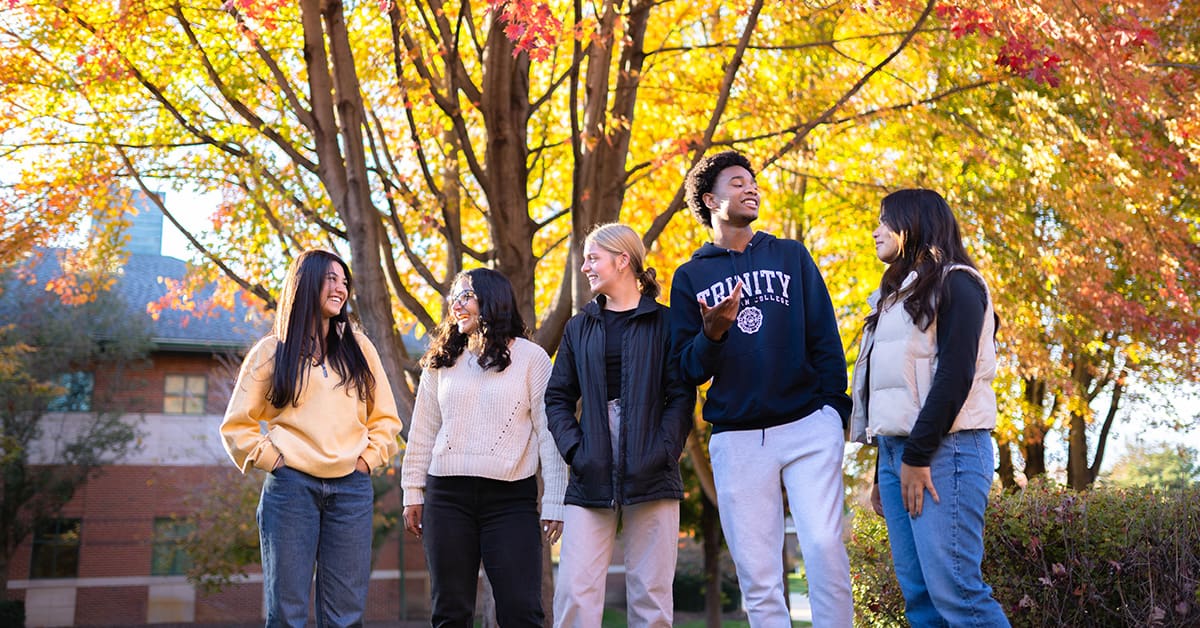Trinity Christian College Partners with Harvard to Redefine Student Wellbeing


Trinity Christian College is embarking on an exciting partnership with the Human Flourishing Program at Harvard University to measure and promote key indicators of wellbeing within the college community. This collaboration, which will begin this fall, focuses on a transformative approach to student wellbeing through the concept of human flourishing. The initiative, grounded in research, promises to have a lasting impact on how we understand and nurture the wellbeing of students in higher education.
A core component of Trinity’s wellbeing transformation is Wellbeing Wednesdays—a unique initiative where students have the day off from classes to focus on their mental, physical, spiritual, and emotional wellbeing. The idea behind Wellbeing Wednesdays is simple: college students often have demanding academic schedules, extracurricular commitments, and personal responsibilities. By providing a designated day each week for students to step back from the usual pressures of academic life, Trinity is giving them the space to recharge, reflect, and engage in activities that support their overall wellbeing. Students can use this time to catch up on homework, pursue internships or jobs, participate in extracurricular activities, or take part in wellness programs designed to enhance their physical, spiritual, and mental health.
Human flourishing, a concept central to this initiative, refers to the whole-person wellbeing of an individual, encompassing not just happiness, but also personal growth, meaningful engagement with others, and a sense of purpose in life and vocation. At all stages of life, human flourishing plays a critical role in promoting resilience and wellbeing, but it is especially vital for college students, who are at a formative point in their personal and academic development. Through this research, Trinity Christian College seeks to understand what flourishing looks like in higher education and how best to support students’ success throughout their college years.
This multi-year research project, led by the Human Flourishing Program at Harvard’s Institute for Quantitative Social Science, will analyze knowledge from various disciplines to explore what factors contribute to human flourishing and how to promote that in academic environments. Founded in 2016, the Human Flourishing Program at Harvard aims to study and encourage wellbeing across various stages of life and disciplines, providing a comprehensive approach to understanding what it means to live a flourishing life. The program takes an interdisciplinary approach, recognizing that pursuing flourishing is a lifelong endeavor and that different academic fields—psychology, sociology, economics, and philosophy, among others—offer valuable insights into what it takes to live well.
The research at Trinity will focus on using established flourishing measures, particularly those developed by Dr. Tyler VanderWeele, a leading researcher in the field, to assess wellbeing across various dimensions. Dr. Jessica Clevering, the lead researcher for this project and a professor of psychology at Trinity Christian College, will oversee the study. As the Director of the Adult Program in Psychology, Dr. Clevering brings years of expertise in research to this important project. She believes that the partnership with Harvard will give Trinity and its students valuable insights into fostering human flourishing within the college community.
Dr. Clevering is particularly excited about the opportunity for Trinity students to engage in the research process. “In addition to the high-quality data we will gather, three Trinity students will also benefit from being co-researchers,” she explains. These students—Wynter O’Sullivan ’26, Gianna Rizzone ’26, and Myleigh Halmon ’25—are all first-generation college students who have demonstrated outstanding leadership and academic achievement in their respective fields. As undergraduate co-researchers, they will contribute to the data collection and analysis, gaining firsthand experience in research while also making a tangible impact on the wellbeing of their peers.
Student, faculty, and staff engagement will be vital to the project’s success. Leah Fulton, Vice President for Student Life, notes that student participation is essential for the project’s impact. “We want students to participate and will offer incentives to encourage their involvement,” she says. These incentives ensure that a wide range of voices and experiences are included in the research, further enriching the data and its potential to inform positive changes in the college’s approach to wellbeing.
As this partnership unfolds, it holds the promise of enhancing the wellbeing of Trinity’s student body and contributing to improving human flourishing in higher education institutions across the country. Through research, collaboration, and student engagement, this initiative will help pave the way for more approaches to student wellbeing that prioritize the long-term flourishing of students in college and beyond. With Wellbeing Wednesdays at the heart of this transformation, Trinity is setting a new standard for what it means to thrive as a student—and helping to create a future where flourishing is central to higher education.

